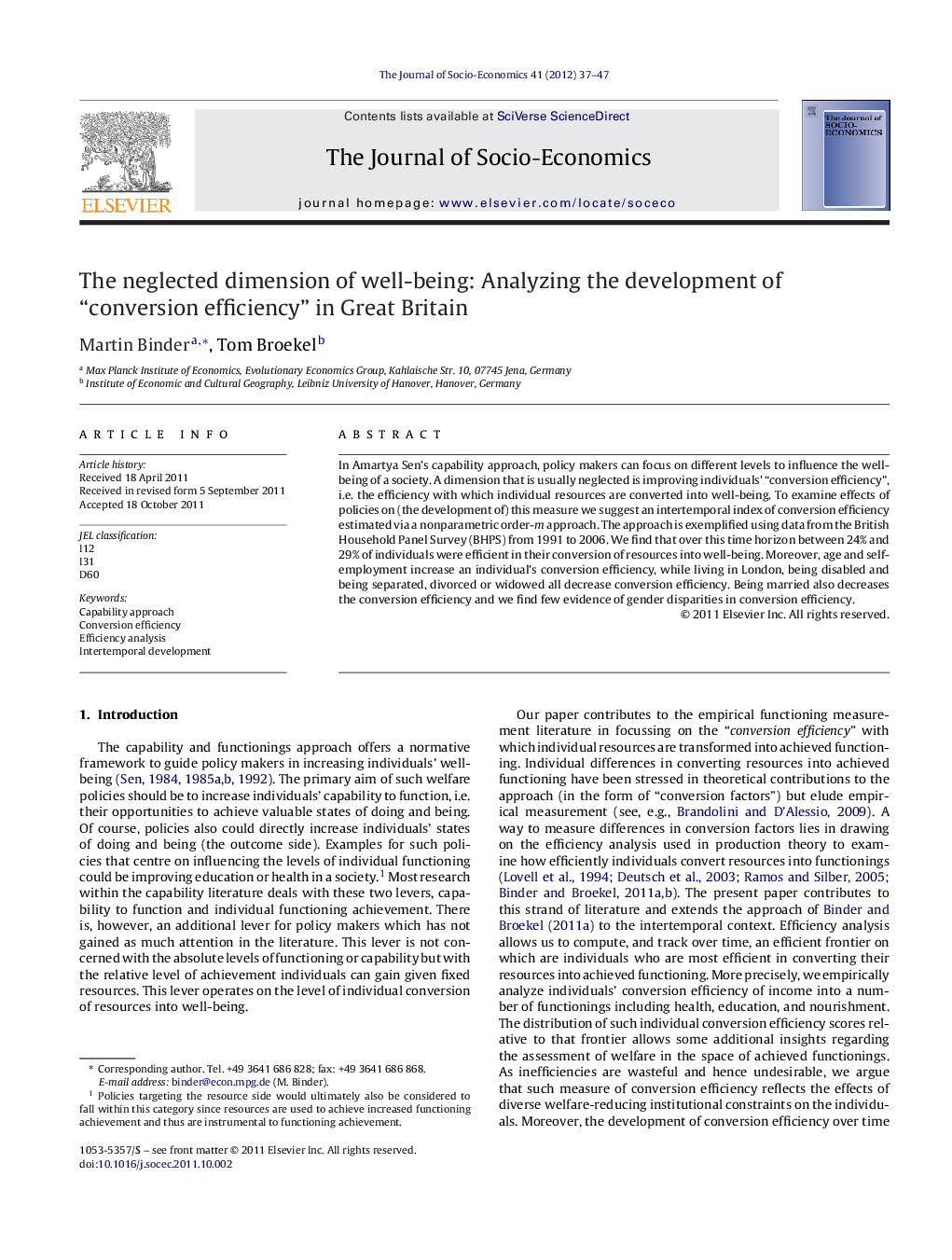| کد مقاله | کد نشریه | سال انتشار | مقاله انگلیسی | نسخه تمام متن |
|---|---|---|---|---|
| 971262 | 1479542 | 2012 | 11 صفحه PDF | دانلود رایگان |

In Amartya Sen's capability approach, policy makers can focus on different levels to influence the well-being of a society. A dimension that is usually neglected is improving individuals’ “conversion efficiency”, i.e. the efficiency with which individual resources are converted into well-being. To examine effects of policies on (the development of) this measure we suggest an intertemporal index of conversion efficiency estimated via a nonparametric order-m approach. The approach is exemplified using data from the British Household Panel Survey (BHPS) from 1991 to 2006. We find that over this time horizon between 24% and 29% of individuals were efficient in their conversion of resources into well-being. Moreover, age and self-employment increase an individual's conversion efficiency, while living in London, being disabled and being separated, divorced or widowed all decrease conversion efficiency. Being married also decreases the conversion efficiency and we find few evidence of gender disparities in conversion efficiency.
► In Amartya Sen's capability approach, policy makers can focus on different levels to influence the well-being of a society.
► A dimension that is neglected is the efficiency with which individual resources are converted into well-being.
► We suggest an intertemporal index of “conversion efficiency” estimated via a nonparametric order-m approach.
► The approach is exemplified using data from the British Household Panel Survey (BHPS) from 1991 to 2006. We find that 24–29% of individuals were efficient in their conversion of resources into well-being.
► This efficiency is influenced by several individual and societal factors.
Journal: The Journal of Socio-Economics - Volume 41, Issue 1, January 2012, Pages 37–47